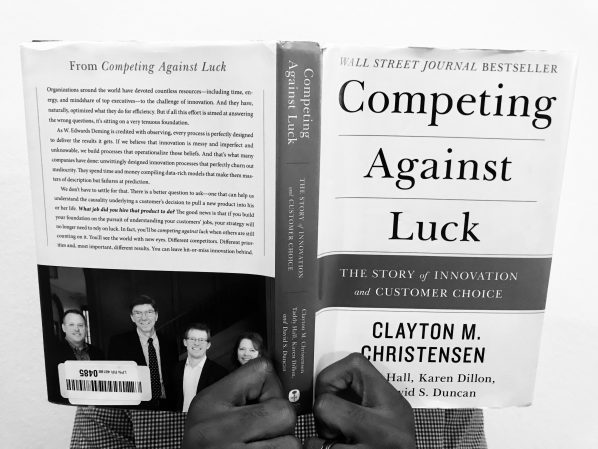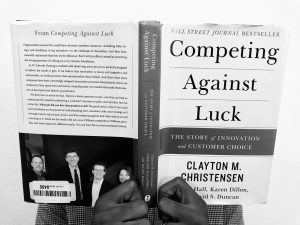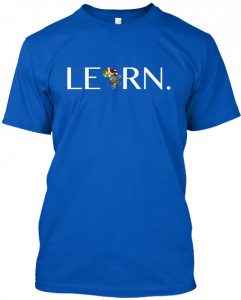“If you can’t describe what you are doing as a process, then you don’t know what you are doing.” W. Edwards Deming
Some book titles simply give away the content of the book which often impedes our motivation to read the book in its entirety. This book title is not that. Competing Against Luck: the story of innovation and customer choice was a recommendation from a colleague that I admire who spends his time working with some of the most innovative startups in Silicon Valley. I asked him to recommend a book to me so I could learn how startups innovate, and this was one of his recommendations. I used to think innovations were mostly by luck, but after reading this book, I’ve come to appreciate the fact that many of the best innovations emerged out of a process.
The author, Clayton Christensen, introduces the concept of Jobs to be done (JTBD) theory. The JTBD theory explains that “we all have jobs we need to do that arise in our day-to-day lives and when we do, we hire products or services to get these jobs done.” As an innovator or company, “you have to understand the job the customer is trying to do in a specific circumstance.” The author goes on to define a “job” as the “progress that a person is trying to make in a particular circumstance.”
I read most books through the lens of an Account Manager. My goal is to extract insights that I can apply in my daily sales motion, and share them with you. Below are my four takeaways:
- Understand the job your customer is hiring you to do as a salesperson. Have you ever paused to get clarity on why your customer is hiring you as a salesperson, not your company or product, but you, the salesperson? Are they hiring you because you would ask the right questions? Are they hiring you because they want to negotiate a complicated deal with you? Are they hiring you because they have issues that only you can address? Are they hiring you because they know you would introduce them to someone else in your company? Maybe they are hiring you for all of the above or maybe they have no choice since they are in your territory.
This book has changed my perspective on why customers hire me as a salesperson. The more clarity I have, the more I can help the customer make progress towards completing the job. If there is a misalignment in the requirements of the job, it would most likely be a frustrating experience for me and the customer.
- Understand what “progress” means for your customer, from their perspective. This point is closely related to the one above. If a job is progress that a person is trying to make in a particular circumstance, gaining agreement on what progress means for you and your customer would only ensure a successful outcome. According to the author, “you’re selling progress, not products.”
- Competing against inertia is often your biggest competitor. It may be easy to think the incumbent or a disruptive new provider is your competitor, which may be the case. However, what if your true competitor was “doing nothing?” How would that change your approach? In the book, Netflix’s CEO, Reed Hastings, was asked about one of his competitors. His response was brilliant. He said “we compete with everything you do to relax. We compete with video games. We compete with drinking a bottle of wine. That’s a particularly tough one! We compete with other video networks. Playing board games.” As a salesperson, it’s important to have clarity on whom you’re truly competing against and the job to be done. One parallel a salesperson can draw from companies that successfully enter markets that seem closed or commoditized is that “they do it by aligning with an important job that none of the established players has prioritized.” The best salespeople I’ve had the opportunity to learn from usually focus their energy on educating decision makers on important jobs that they didn’t know were possible and aligned their solution as an accelerator for progress.
- Measure the metrics that are important to your customer. The author reminds us that what gets measured, gets done. He went on to share the example of how Amazon measures when orders are delivered, not when they are shipped. It makes sense because when I order anything online, I don’t care when it’s shipped, all I care about is when it is delivered. As a salesperson, focus on the metrics that are a priority for your customer. If you find ways to optimize these metrics for your customer, the result should positively impact the metrics you care about such as revenue, profitability and customer lifetime value.
If you have additional insights that resonated with you, please share them with me on twitter @ozisco or email ozisco @ gmail.com






